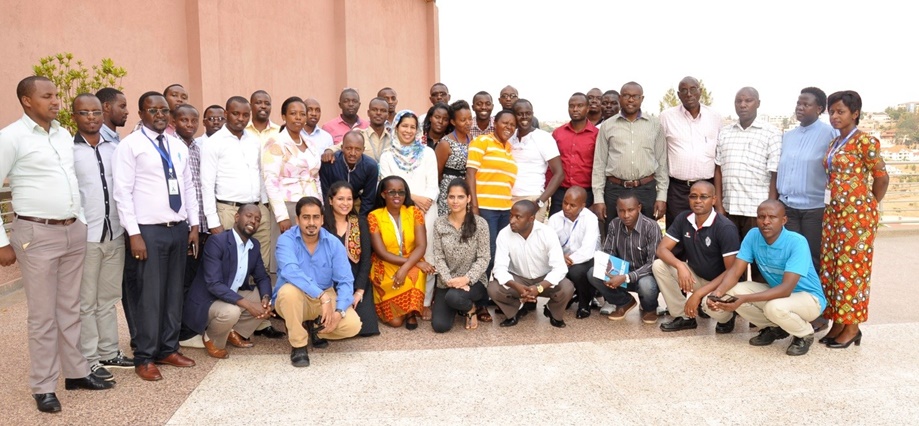Kigali, 19th September 2016 - Capacity building is considered from the overall planning of the Ministry of Infrastructure where strengthening and improving skills and knowledge of technical staff remains among its plans to ensure proper policy implementation in the infrastructure sector.
From 13th to 17th September 2016, the Ministry of Infrastructure in collaboration with the National Capacity Building Secretariat (NCBS) organized a 5 days training on “MainstreamingSustainable Urban Water Management which aimed at empowering the capacity of Water and Sanitation actors. It brought together participants from different government institutions namely MININFRA, MINIRENA, WASAC, RHA, RURA and all Districts. The training was facilitated by experts from the Centre for Science and Environment based in Delhi, India.
As emphasized by Eng. Marcelline KAYITESI the Acting Division Manager for Water and Sanitation Division in the Ministry of Infrastructure, the training is useful given the need of well skilled and knowledgeable staff to be able to implement Water and Sanitation policy at different levels. Participants were specifically trained on planning and management good practices of Urban Rainwater Harvesting systems, Decentralized Wastewater Treatment Systems as well as tools and techniques to design both Urban Rainwater Harvesting and Decentralized Wastewater Treatment Systems.
She therefore requested participants to make use of acquired skills for proper planning, design and implementation of urban rainwater harvesting and wastewater projects for country development.
Participants committed themselves to find solutions on existing challenges in water and sanitation especially in wastewater management and urban storm water management in urban areas as well rural areas.
The Ministry of Infrastructure signed a partnership Memorundum of Understanding (MoU) in July 2015 that will further strengthen and bridge the gap of capacity building needs in the sector. This will bring about knowledgeable technicians with readiness to implement projects on timely and cost effective basis. The continued trainings will lead also to job creation rather than job seeking hence poverty eradication and stimulation of economic development.

 ENGL
ENGL KINY
KINY